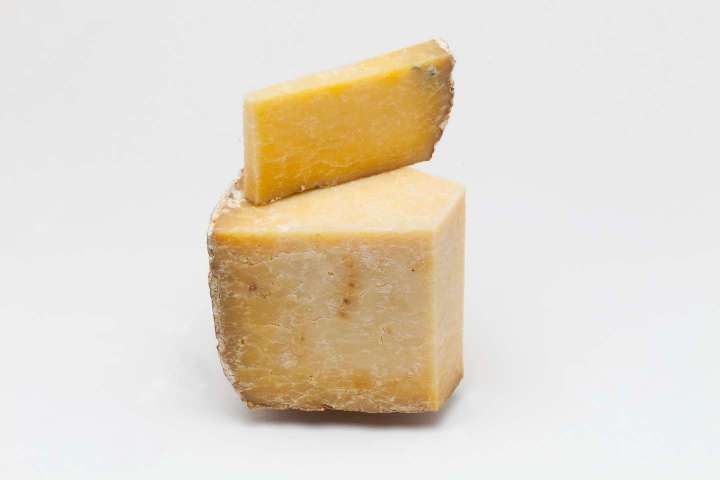Every year, farmers in France’s central region of Auvergne repeat the same process. During summer and fall, their cows graze in pastures, eating to their hearts’ content. It’s only during this time that farmers can produce salers, a highly regulated semihard cheese with the same buttery depth as a well-aged cheddar.
French farmers made salers cheese for 2,000 years — then a drought hit

That seasonal cycle remained uninterrupted for over 2,000 years until last week, when salers became the latest casualty of severe heat waves wreaking havoc across Europe, where human-caused climate change has intensified temperatures. France’s severe drought shut down the cheese production that had continued through two world wars, collapsed monarchies and the fall of the Roman Empire.
The decision to halt the cheesemaking was based on two factors: the meadows’ utterly parched state and the rules that regulate salers’ production.
In France, the dry spell has been so severe that the country has 62 regions with restrictions on water usage — including Cantal, where salers is produced. But it’s not only a drought; wildfires have also raged, displacing thousands of people. This year’s infernos have already scorched more acres there than any year before.
Salers is what’s known as an AOP good, or a product carrying the European Union’s Appellation d’Origine Protégée label. The designation signifies that a good originates from a specific region and has an officially established reputation — similar to champagne or Kalamata olive oil. But carrying the label also means the product must meet strict standards — and that’s why the drought has been such a problem.
In the mountainous and volcanic region of Auvergne, 78 farmers toil between April 15 and Nov. 15 to turn more than 3 million gallons of milk into about 2.4 million pounds of salers cheese each year, according to France’s Ministry of Agriculture. During those seven months, dairy cows graze as much as possible on fresh grass. Their raw milk is collected on a wooden container and then curdled, pressed and salted. The mixture is then left to ripen in a cylindrical mold for three months to a year.
In order for the milk to be used, the rules for salers state that at least 75 percent of the cow’s diet must be grass from local pastures.
“Salers is a seasonal cheese, made with the seasonal grass. It’s one of the pillars of its identity,” Laurent Lours, president of L’AOP Salers, a local group of cheesemakers, told France Bleu. “With more hay [instead of grass], the paste would be whiter; we would have less flavors. Our product still has a certain reputation among consumers — we don’t want to break it.”
The drought has made reaching that threshold an impossible feat. The normally lush, green pastures are now shriveled and brown. There’s simply not enough grass for cows to feed almost exclusively on it, local farmers have said.
“The ground is so dry, so hard, that in some places it looks like ashes. It’s dust,” Laurent Roux, a farmer, told France Bleu, adding that his cows had not grazed since late June. “We have always had periods of drought in the summer, but this is hard, very hard.”
When a similar situation came up in 2019, L’AOP Salers requested and was granted a waiver to use milk from cows with a local grass intake of just 50 percent. But the dryness this year has proven so harsh that taking a similar route “is not worth it,” Lours said: “We do not even have enough for 50 percent of the grass.”
The specter of the drought looms large for the dairy farmers, who are already grappling with higher fuel costs and food prices. One option they have, Lours told La Montagne, is to use their milk to make cantal, a type of cheese similar to salers but without as many restrictions. Yet that itself comes with a financial loss, since salers is valued higher than cantal.
What the cheesemakers are contending with underscores a larger trend of climate change taking a toll on people’s livelihoods — effects that could become more pervasive in the future.
According to the European Drought Observatory, 47 percent of Europe is under “warning” conditions for severe drought and a major soil moisture deficit. An additional 17 percent is under “alert” conditions — at which point vegetation suffers, in some cases dying out or thinning.
Many French staples, such as mustard, wine, peppers and mussels, have already been affected by the dry spell. Salers now joins the growing list — a hard hit in a country known for its immense variety of cheeses.
“No AOP salers cheese this winter on our tables,” French photojournalist Thomas Jouhannaud wrote on Twitter. “A direct consequence of the drought we are all experiencing.”
“Some will not care, I cry,” he added.
Others are pleading for rain.






